EXCLUSIVE: Fashola speaks on uninterrupted power, estimated billing, prepaid meters — and machetes
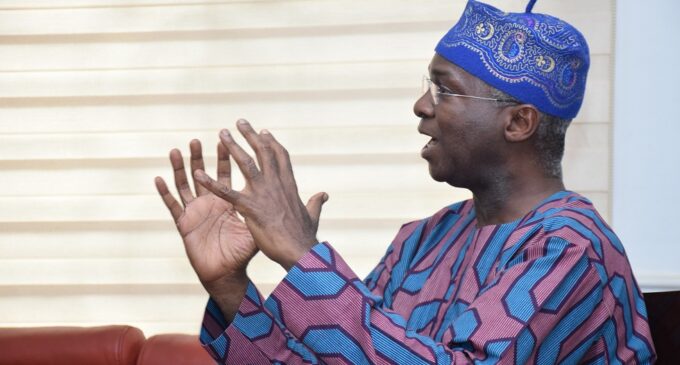
The question on the lips of Nigerians is: when are we going to enjoy steady power supply? With billions of dollars spent on the sector in the last 17 years, the only thing that Nigerians want to see is result. Babatunde Fashola, minister of power, works and housing, speaks to TheCable on the various issues bugging down the sector — as well as the road map to stability.
The power supply chain — in layman’s language
The easiest way to explain the power situation without being technical is to say that we don’t have enough power, although there are other problems on the side. If in one family, we have 12 adults and there is only one bottle of water, all of us will not get filled with one bottle, so let us use that bottle of water as an example. We are trying to get more water so that everybody’s thirst can be satisfied. We have to produce electricity. Currently we use gas and hydro. If there is no gas, which is the fuel that drives the turbines and activates the electrical side that produces electricity… the turbines are like the generators at home, only bigger. It has an electrical and mechanical side. The mechanical side is the engine, which in the case of the home generator uses the fuel. So anytime you don’t get petrol, you know you can’t run your generator. Same thing if you don’t get gas. If you have half tank, it will run and shut down. So we don’t have enough gas production as well.
When we have gas production, some people are breaking the gas pipes so it’s like filling your generator and someone takes a nail and punctures the tank. The hydro side depends on water flow, which is reduced in the dry season so they have to store water. During the rainy season, they have to let the water flow so that it doesn’t break the dam but that is also dependent on maintenance. There can be a lot of water and not be electricity if the turbines are not maintained. When I resumed office, I travelled to Jebba to commission a replaced turbine that had not been maintained since 1985 when Buhari commissioned it as military head of state. It was when investors came that they started fixing the turbines because government didn’t so. That is one of the good things that privatisation did.
If you produce power, those plants are far away and the power has to be transported. Power cannot be stored; once it is produced, it must be used. The real revolution of our age would be the production of equipment that can store electricity, like the batteries of solar systems. The man who has produced power using somebody’s gas has done his work, so he expects to be paid. Assuming that I supply petrol to your house for your generator then you pour it in and your son punctures a hole in the fuel tank so you can’t produce power from it. Will you say you can’t pay me because your son wasted the fuel? The man who supplied the gas also expects to be paid and if he doesn’t get his money, he’ll stop supplying after a while. When power is produced, it is transported on what we call the high tension wires. If the power station at Egbin produces electricity and the transmission line, which crosses the lagoon to drop at Alagbon, is not working, Egbin still deserves to get paid because they have produced.
When the power gets to the sub-station at Alagbon, the sub-station sells the power to Eko DisCo (for distribution). There can be all sorts of technical problems between when you are connecting it from the sub-station to the DisCo. Transformers can fail and the government must replace those because the DisCo is now the customer of the transmission company to receive power for retail. An example I use is the breweries. They have produced their products but not many of them go to the market to sell it. They hand it over to dealers for distribution. From that point, the distributor (DisCo) is responsible to sell and he needs 33KV cable to bring it to your house at 11KV. He also needs transformers to step it down because the power is coming at 330KV which can be dangerous for use. If those transformers spoil, they must be replaced. First, they must have the money to replace those parts, maintenance discipline to store some, inventory keeping.
Why there’s estimated billing
Now they give you the power if everything is working. If there is no meter, disputes arise and people complain about estimated billing. A lot of people are using electricity without paying for it. Where there is no meter, some of the things you see is that the distributor knows that he has supplied a certain amount of electricity to an area but there are only 10 houses on the street so he shares the amount of electricity by 10 and you get that estimated bill. Sometimes in estimated billing, you are paying for somebody’s theft and the distributor must pay to the people who supplied power. The DisCos get about 30% of the money and the rest is used to pay the transmission company, generating company (GenCo) and the gas supplier so that everybody can produce more. He knows how much power he has supplied and he must take money back to government from whom he bought power. NBET, Nigerian Bulk Electricity Trading, is government in this case. NBET will go away later when we have more power and DisCos can buy directly from GenCos but in order to give stability we created a bulk trader. For every power produced, we will buy from you and we guarantee that we will pay that is one contract. It is called Power Purchase agreement.Then there is another contract called Vesting Contract that is the contract by which NBET sells the power to the DisCos to go and distribute.
One a daily basis that power is produced, if any part fails, there is a debt in the market so everybody must pay their part so when you cut the gas line because you are angry, you have created a debt in the system because all of them have gone to borrow money to fix transformers, turbines and all sorts of things on the expectation that there would always be power. Any day you don’t supply power or the exchange rate suddenly changes, they are in trouble because the basis on which they have planned has changed. If the turbines fail after the gas man has supplied gas such that power cannot be generated, the gas man must get paid because he has done his job, it is the GenCo that has failed everybody. Even the transmission man, the government, has invested and he expects to get something for his investment.
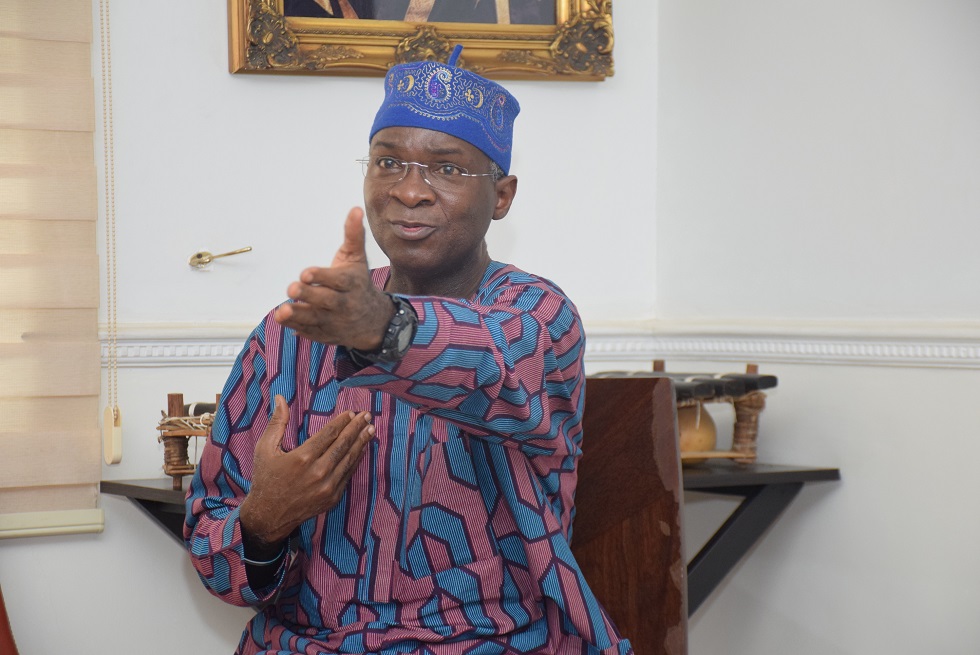
“Where there is no meter, the distributor knows that he has supplied a certain amount of electricity to an area but there are only 10 houses on the street so he shares the amount of electricity by 10 and you get that estimated bill”
My role in a privatised sector
The major responsibility I have as power minister is to administer the electricity sector reform act of 2005 which is as a policy maker, overseer of the industry and work with the regulator, NERC (National Electricity Regulatory Commission), to ensure people play their part. The referee in the business, who has the power to sanction, is NERC. There are still some powers that the minister has. For example, the power to declare Eligible Customer, the power to develop a rural electrification implementation plan that ought to have been done since 2006. It wasn’t done till I became minister and that is why you see us setting up the rural electrification agency. We can’t cover every part of the country on the grid. There are some villages that the houses are sparse, that it is not profitable to build a 330KV line or 132KV line to serve a small street. It is better to have an independent grid and that will happen later this year and beyond. We plan to use federal universities as the base to grow an independent grid for the villages around them. We want to complete the inherited projects started since 1999.
Misconceptions on the national grid
I used to have the impression that power is sent to Osogbo. However, Osogbo is the coordination centre that decides the allocation to DisCos because all the states have different energy capacities and demands. The total energy produced is like a pie chart; Abuja DisCo gets 11% of whatever energy is produced based on population and some other things, so NCC (National Control Centre) coordinates the delivery through different centres. For example, Egbin’s line goes to Alagbon, Ayobo and Republic of Benin. It’s not that all the lines go to Osogbo. There is an equipment called SCADA for coordinating. The SCADA that I met is not fully functional and that is where you can see everything that is going on from Osogbo.
Privatisation allows everyone to generate their own power subject to the licensing regime. Below one megawatt, you can generate your own power but above that, you have to apply for some licences from NERC. As the world is going towards renewable energy, my job minister is to formulate policies for government that allow everybody to play in the renewable market. One of the things we have done is to develop an energy mix for Nigeria which we presented at our National Council of Power last year and that helps us to target a 30% renewable by 2030 of all our energy capacity. We are also looking at getting some more coal onto the electricity mix, getting more hydro, some wind, solar… because we have been too dependent on hydro and gas. Every material has its downside but countries across the world have developed an energy mix so that seasonally, you can move from one area of strength to another.
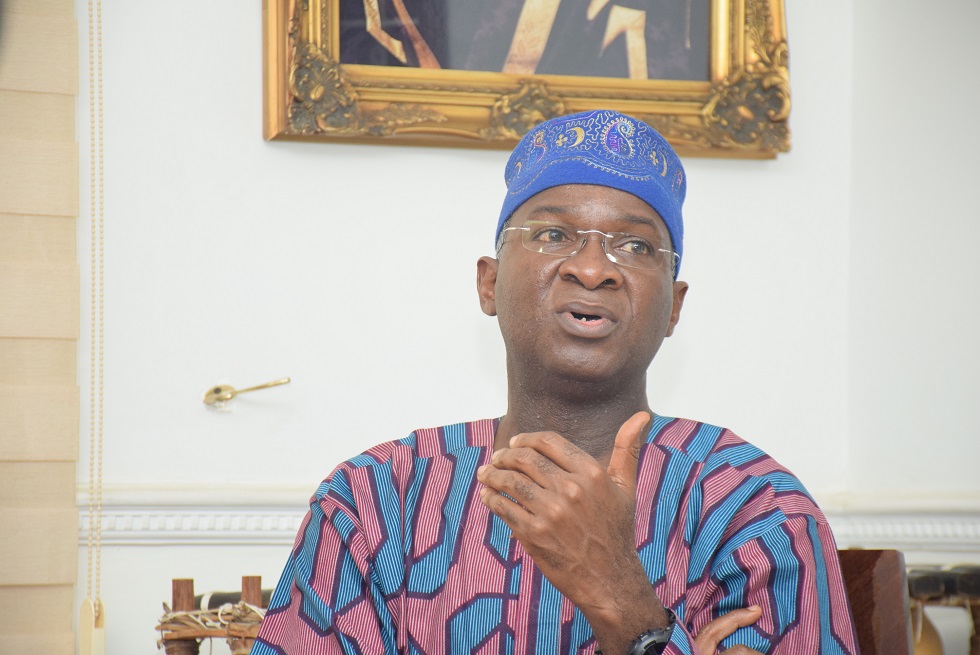
“It wasn’t done till I became minister and that is why you see us setting up the rural electrification agency. We can’t cover every part of the country on the grid”
ON THE ‘ELIGIBLE CUSTOMERS’ CONTROVERSY
In my role as minister, I will be accused of siding all sides. Even within the cabinet, I have been accused of siding with the DisCos. When tariff was increased, I was accused of siding the DisCos when I spoke in favour of tariff. Very few people remember that I didn’t fix the tariff. I only expressed support for it. The minister can’t fix tariff, NERC did and even NERC approved tariff recommended by the DisCos based on market dynamics. I am accused of siding the GenCos because they are at least more efficient on their side. Their turbines are working, they are investing but they are not getting paid. The side that is functioning and generating the power must not be allowed to die otherwise there won’t be anything to distribute, so we saw that the money that should be coming in to pay the GenCos and gas companies was not coming in because of exchange rate, sabotaged pipes, inefficiency by the DisCos themselves, lack of capital. Nothing the total fault of the DisCos.
The GenCos are still producing some power, no matter how poor you think it is, and they don’t get paid. We decided to create a payment guarantee by going to FEC to ask for a loan for NBET, which is government-owned company, that is the guaranteed purchaser so that it can discharge its obligations to the GenCos because it buys that power from the GenCos but doesn’t fully pay because it hasn’t received the money from the DisCos. They are two different contracts because the fact that you have not received money from the DisCos is no defence not to pay the GenCos. So we created a payment guarantee because we think privatisation is still growing. So we took January 2017 to December 2018, how much are we likely to owe them given the shortfall we are seeing from the DisCos and it came to roughly N701 billion. This includes the performance improvements we want to see based on the policies we have agreed to implement under the power sector recovery programme. We borrowed this money so that we can use it to make up the difference in the amount the DisCos are supposed to pay and how much they actually pay.
By next payment, we expect that the shortfall decreases. We expect the DisCos to have increased collection because there are certain policies we are planning to implement. It is not a N701 billion kept in one bank, it’s a programme to assure that every month we can borrow the difference to pay. The DisCos have accused me of not doing enough but as I said in Jos, they fail to tell the public that they are also beneficiaries of a central bank loan that was approved before I came, but the conditions for getting that loan included an escrow of their accounts and opening of certain letters of credit which can be called if they default; they didn’t want that but they wanted the money, so instead of doing that they went to court but they didn’t tell the public that they went to court. The public will not understand why the nation is suddenly in darkness and all of this technical things. The idea behind that payment assurance was to secure continued production of power while we are curing the defects in distribution. If the distributors of brewery products are not recovering money of products supplied, will the brewery shut down? No,they will continue to produce and find other means to collect back which exactly what we are trying to do.
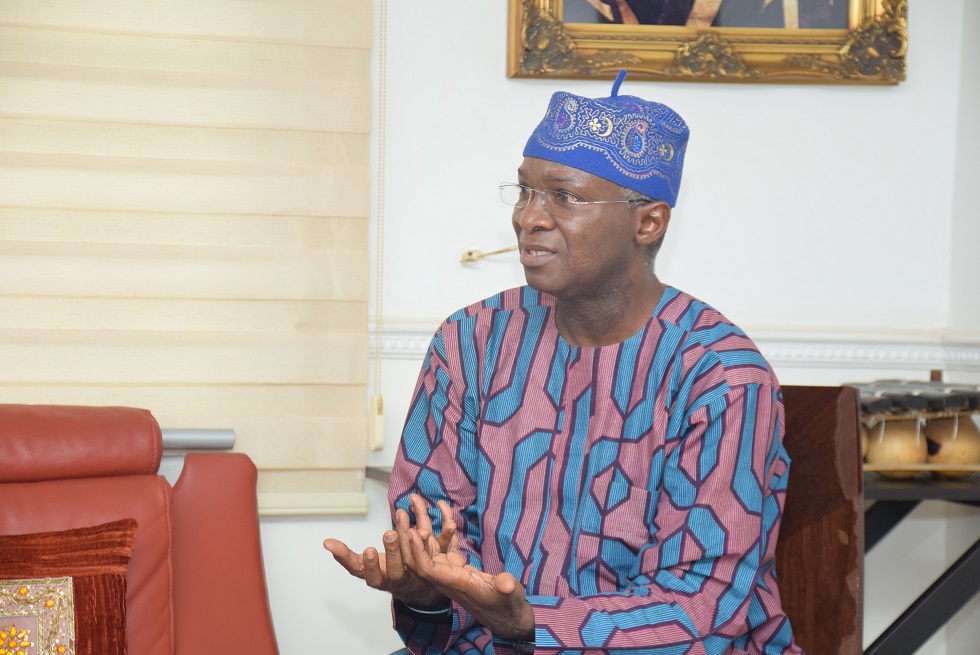
“The GenCos are still producing some power, no matter how poor you think it is, and they don’t get paid. We decided to create a payment guarantee by going to FEC to ask for a loan for NBET”
ON DiscCos declaring force majuere over ‘ELIGIBLE CUSTOMERS’
I have not been officially notified about the intention of a force majuere. We met in Enugu on Monday and none of them raised that although they expressed concerns about eligible customers but I explained to them that they were seeing the declaration from the revenue side. If they articulate their side then I will respond but to simply say it is going to reduce our revenue is not it. I am seeing it from the service side and that is part of my job as minister, provide service to Nigerians by ensuring that those who are now private owners of that service do what they are contracted to do. Eligible Customers simply mean that certain customers who consume a lot of power, and we have categorised them, they are not getting service from their DisCos because maybe their transformer is bad, feeder is bad and the DisCo can’t repair it and that is what leads to load rejection. You’ll wonder why they are rejecting load that we say is not enough. It’s because DisCos don’t have the money to repair the equipment that will fit that customer so that customer is suffering, he wants power and the only reason he can’t get it is because the DisCo doesn’t have the money to repair that equipment. That customer now offers to use his money to build distribution facility and take power directly from the GenCo because the DisCo can’t build it. Why should any responsible government say no to that?
You can’t supply a service because your equipment is bad or is not there, somebody offers to get it by himself and you say it will reduce your revenue. If it so important to your revenue, go and replace it. There will be no Eligible Customer if the DisCos perform. That’s the reverse of it. Right now, NERC will implement the policy but it will not do so without consulting with them. As far as revenue is concerned, I think they want to continue to bill people for services they did not provide, we won’t allow that. There can’t be a secure revenue for service you have not provided. You must provide the service and then earn the revenue. There is an opportunity here for disaggregated tariff without creating any problem to the poor and vulnerable. The person who can build his DisCo will do so at a cost and for him to use it, he must pay some revenue to you because he is in your territory, so he is paying for premium. This way, you get all the tarriff review you want without necessarily increasing everybody’s tariff: you have a premium customer who can build his own network and is willing to pay higher than the public tariff but cheaper than generating with diesel, so why are you standing in the way of that?
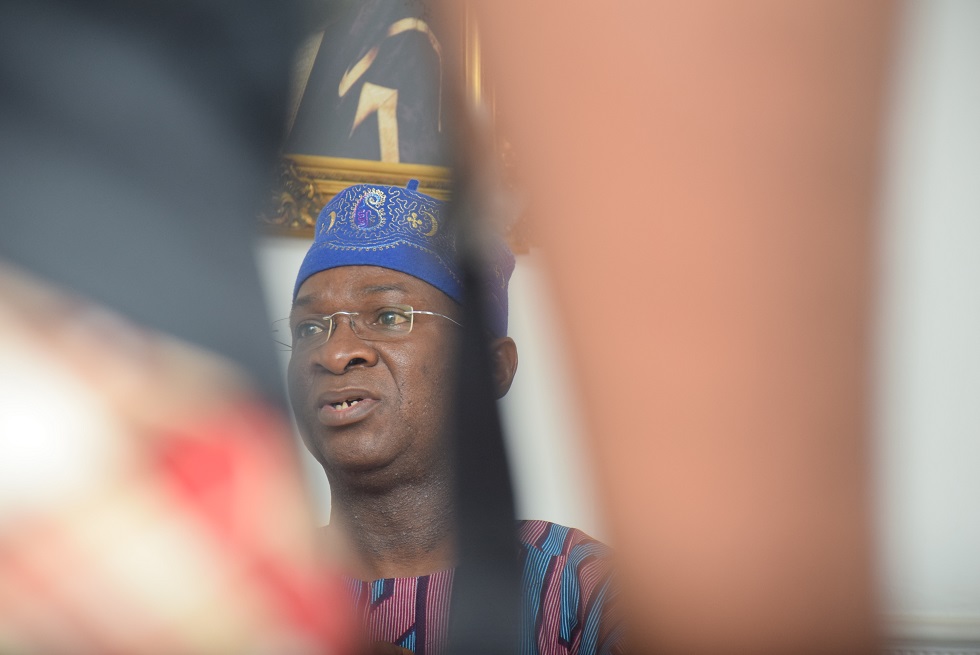
“We have steel companies who consume 50MW already applying to be eligible customers. State governments can be eligible customers. I was one as Lagos state governor because I took the whole of Alausa off the grid but we were paying higher than NEPA.”
We have steel companies who consume 50MW already applying to be eligible customers. State governments can be eligible customers. I was one as Lagos state governor because I took the whole of Alausa off the grid but we were paying higher than NEPA. This will free up energy for regular customers and you will also have customers who want power and are ready to pay premium for it. During the consultations with NERC, they will understand better; what we are seeing is a knee jerk reaction. It’s an argument that goes nowhere. There is a power producing company in Isolo who has license to produce 20MW of power. They are producing 14 but only have customers for eight and six is just there because they can’t sell at grid price, their power is premium. We have six factories in Isolo who are willing to take power from them if they can be awarded eligible customer and I have sent it to NERC. If the industries have more power, it means more productivity and employment.
On prepaid meters and cabals
There is no cabal, it’s a long story but we are almost there, we are close. The people who should supply meters are the DisCos. It’s part of their licensing agreement and they should provide it free because it is their measuring device for calculating how much to bill you. When they couldn’t do it, government allowed them to do a credit applied metering initiative (CAPMI) where you advance money to provide a meter they should have provided and then they defray on your bill but even that, when they collected your money, they couldn’t supply the meters within 45 days or 60 days. It became a serious issue and we said wind it down. It’s bad enough that consumers do not have meters that you should supply. It is worse that people pay and you don’t give them what they have paid for. Stop it because the complaints are coming to me and not to you, of course their finances are in some challenging situation. There is a credit provided by the French development agency for them to acquire meters, the interest rate is a lot better but their books can’t take loans, they’re bad.
I inherited a metering programme that is the subject of so many stories but we are trying to resolve it. It was a contract awarded in 2003 by NEPA to supply about three million meters for N37 billion. That contract has not been performed 14 years after. The money is in a bank, there have been court cases around it but we are very close to solving it. It is unlikely that we will get the same number of meters because some things have changed. We are trying to work out how we can create a metering programme and account for it as part of the portfolio of assets within the shareholding that the federal government has in the DisCos. There is a lot of work to be done but the first thing is to settle with the contractor and know how many meters that will come in. Privatisation has succeeded in many countries like China, India, Mexico, South Africa and Brazil. It has not succeeded wholly without some government support. What has been problematic here is that the privatisation was delayed for eight years after the law was passed so we should have gained a lot of time. We did telecoms in 2002 and we should quickly have done power after passing that law in 2005 but there was resistance from a lot of quarters.
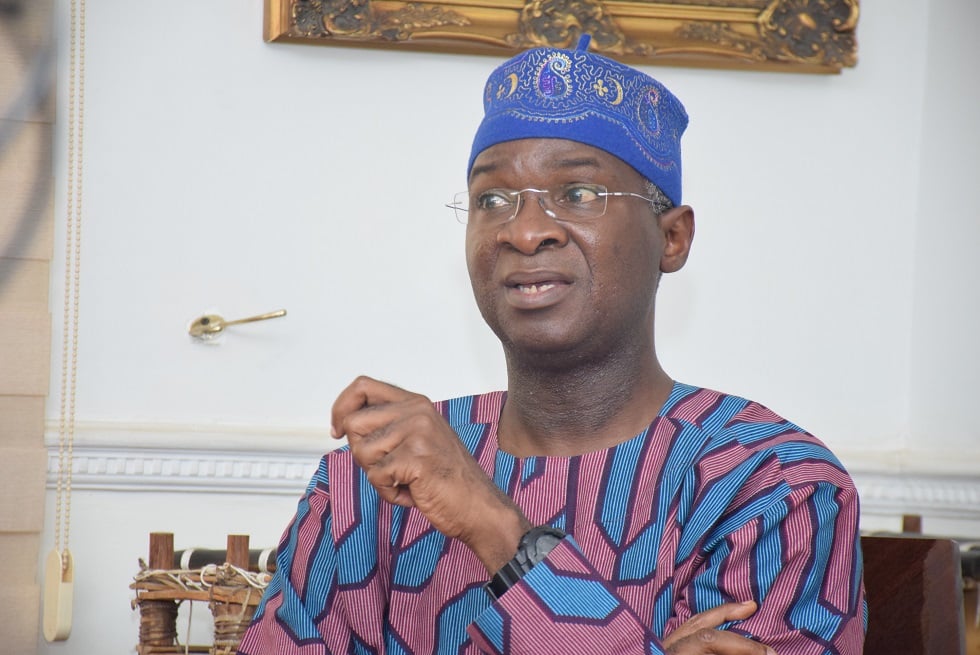
“We have reports of people being attacked with with machetes while trying to install meters. Some people want meters but some people don’t want it”
It was also done with some lack of honesty because it was done in the heat of politics and it created an impression in the presence of Nigerians that privatization would solve all the problems. They didn’t tell Nigerians that there was bad equipment, meters to be installed and all of the work that needed to be done so it created an expectation that was unreal. We didn’t build our mind for a transition period, which is where we are now. If all of these had been told to Nigerians, they would have understood better the gaps that our power sector recovery programme is trying to re-engineer and solve.
When we finish what we are doing, we will unveil it to Nigerians. It is my intention to break it into the major languages so that everybody understands what we have to do because there is a lot of work to be done. There are places where people resist meter installation so we need an anti-energy theft law, a rigorous one. In places where they want to install meters, people resist. We have reports of people being attacked with with machetes while trying to install meters. Some people want meters but some people don’t want it. We need to conserve energy because what is wasted will never be enough. There is no state that I have visited in the morning where I don’t see people putting on light bulbs outside the house at 11am. It suggests that people are not paying for that energy. I am optimistic that we will solve the problem because a lot of Nigerians are beginning to get on the issue. We have not paid as much attention to it as we are doing now and I know that when Nigerians pay attention to something, they win.
Uninterrupted power supply? When?
Uninterrupted power supply is not an event, it’s a journey. The first is incremental energy. As we get that, our electricity experience gets better, then we go to steady power. Steady power means we have enough because we know how many people need power. Today, we don’t have the census of our energy demand; everyone is estimating by mouth and that is not a number to plan for. And every investment you make has to be accounted for because it reflects in tariff. You must recover every investment so if you have excess, you will overpay. We must get it right. That is the road to steady power, we need a census first then we move to steady power but incremental energy experience will relieve us.


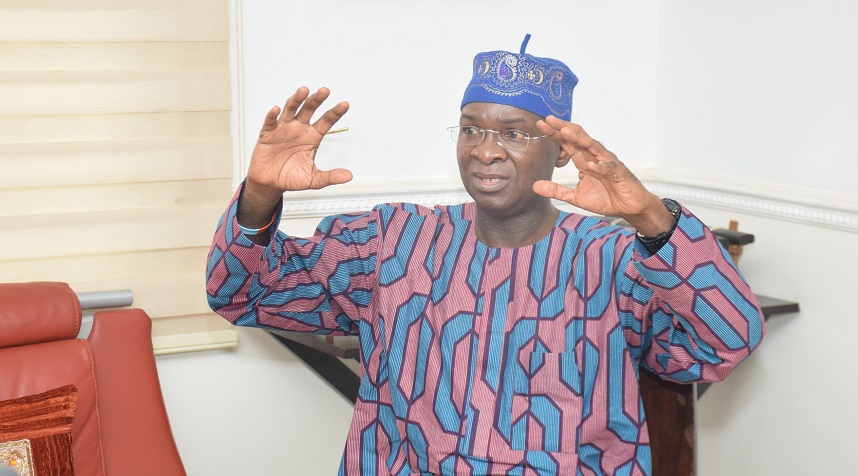



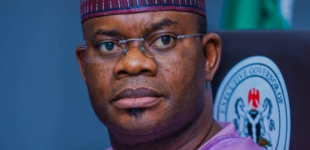


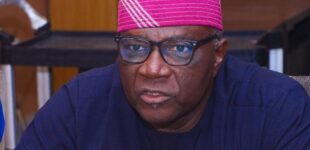
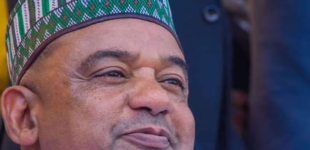



It’s a nice piece and I thoroughly enjoyed reading it.We need more of this.
The minister is a politician but I doubt if he is a thoroughbred politician. However that is not the issue. The main issue is Nigeria should work and we must make it work.
The minister must work and be seen to be working.
Avoid all distractions. Nigeria is a big nation.His success will be a pride to the people that believed in him and in Nigeria.
There is nothing said here that a smart kid straight from the university cannot rehearse. A power minister is not someone that should use 2 years of a 4 year mandate to learn his job. Neither should a bunch of politicians campaign for office only to discuss problems like they are hard to surmount. This is the main issue with this APC led government. They campaigned to be offered a job they did not understand how to solve. They are now pleading for understanding and time. Well, time is a scarce commodity! It is not new that Nigeria problems are complicated. We need people adept at solving complicated problems
what has been damage for over two decade can not be fixed in two years sir, this is well explanatory, part of what he said is in the public domain. we should continue to do our best as citizen and pray for our great nation.
God bless you for this response. Which smart kids out of Ivy League will easily rehearse the web of intricacies in our power like he opined?
Even you cannot rehearse what the Minister said here. Please stop trivializing a serious issue. If you do not have the details of a problem how can you claim to know the solution?
Nigerians sha, ordinary English we cannot understand,i believe it’s nice of him to have come out like this to explain things to us.
I think the minister needs to educate the populace more. The more people understand the more patient and understnading they will be
Why has the top notch in government since 1999 been unable to fix power? It is because there is no sincerity on their part. I have confidence in this present government to fix this problem because they are meticulous in their planning and execution.
This minister now fully understands the issues in the sector and has proposed real solutions. It took 2 years to come to this point but I blame Mr President the most. This sector is too large and too critical for national development for him to lump it together with 2 other ministries under 1 umbrella. Just identifying the bad eggs in the ministry takes 6 months, before starting the real job. To do this with 3 ministries is a herculean task.
The above is a good report of where we are and a pointer to where we need to be.
I would have expected the Minister to say that those who have paid for their meters (even though we suppose not to pay for it, it should be free) should (1) not get estimated bills (2) not get any bill. The meters being forced on some people should be supplied to those who have paid.
In January 2017, I noticed that the cost of energy per KWH in Port Harcourt Disco went up by more than 21%. This went without notice. From the NERC site, there are different rates for different Discos. It becomes difficult to know why these differences exist? Were the difference based on getting the power to the user from the generating point? (eg like fuel oil).
What encouragement do I have from the Government if I plan to install solar energy for my use for an example?
For those who do not want meter installed in their houses, power should be cut off from them.
With this kind of understanding, we will get there one day.
Who said you can’t handle three or more ministries, This well detailed interview shows how competent you are and how mean you are to move Nigeria out of this status quo.
The minister is a square peg in a round hole who is protecting the interest of his bosses. I work in the power sector and the literal truth is that The politicians decieved Nigerians and went behind the scenes to buy delapidated national assets, thinking it was their sure tran-generational cash cow, after they missed out on telecom privatisation. If they dont revoke Disco licences ASAP and re-issue them to competent world class electricity companies, just as the telecomms privatisation ushered in world class companies like MTN, AIRTEL et al… with technical and financial capability, Nigeria will continue to experience Darkness till the Next Millenium. Its not a curse!